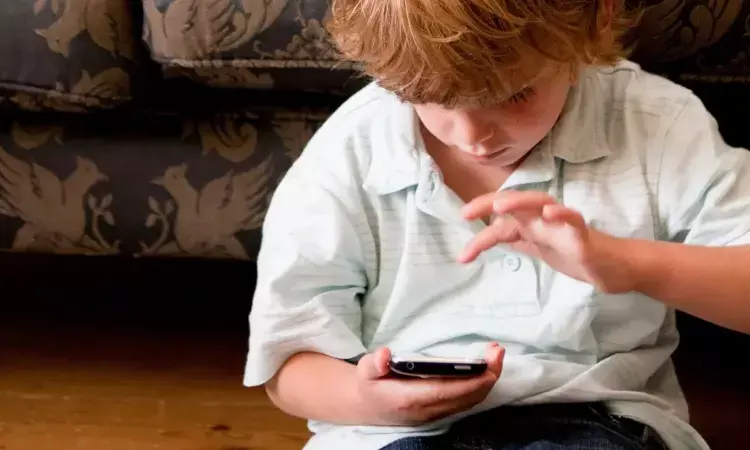- Home
- Medical news & Guidelines
- Anesthesiology
- Cardiology and CTVS
- Critical Care
- Dentistry
- Dermatology
- Diabetes and Endocrinology
- ENT
- Gastroenterology
- Medicine
- Nephrology
- Neurology
- Obstretics-Gynaecology
- Oncology
- Ophthalmology
- Orthopaedics
- Pediatrics-Neonatology
- Psychiatry
- Pulmonology
- Radiology
- Surgery
- Urology
- Laboratory Medicine
- Diet
- Nursing
- Paramedical
- Physiotherapy
- Health news
- Fact Check
- Bone Health Fact Check
- Brain Health Fact Check
- Cancer Related Fact Check
- Child Care Fact Check
- Dental and oral health fact check
- Diabetes and metabolic health fact check
- Diet and Nutrition Fact Check
- Eye and ENT Care Fact Check
- Fitness fact check
- Gut health fact check
- Heart health fact check
- Kidney health fact check
- Medical education fact check
- Men's health fact check
- Respiratory fact check
- Skin and hair care fact check
- Vaccine and Immunization fact check
- Women's health fact check
- AYUSH
- State News
- Andaman and Nicobar Islands
- Andhra Pradesh
- Arunachal Pradesh
- Assam
- Bihar
- Chandigarh
- Chattisgarh
- Dadra and Nagar Haveli
- Daman and Diu
- Delhi
- Goa
- Gujarat
- Haryana
- Himachal Pradesh
- Jammu & Kashmir
- Jharkhand
- Karnataka
- Kerala
- Ladakh
- Lakshadweep
- Madhya Pradesh
- Maharashtra
- Manipur
- Meghalaya
- Mizoram
- Nagaland
- Odisha
- Puducherry
- Punjab
- Rajasthan
- Sikkim
- Tamil Nadu
- Telangana
- Tripura
- Uttar Pradesh
- Uttrakhand
- West Bengal
- Medical Education
- Industry
Avoid Mobile devices for calming young children; may hamper learning emotion-regulation strategies: JAMA

USA: Frequent use of mobile devices for calming should be avoided in young children is the conclusion drawn from a study published in JAMA Pediatrics.
The study of 422 parents and 422 children found that increased use of mobile devices for calming children ages 3 to 5 years is associated with increased emotional reactivity and decreased executive functioning and may supersede their chances for learning emotion-regulation strategies over time. Therefore, the study's authors suggest encouraging alternate calming approaches.
Mobile devices often keep young children calm or occupied, but whether this practice influences child development remains unknown. Therefore Jenny S. Radesky and colleagues addressed the question, "whether mobile devices used to calm young children's behaviour and emotions associated with long-term difficulties with their emotional reactivity and executive functioning?
They examined the bidirectional, longitudinal associations between the parent-reported frequency of mobile devices used to calm young children and children's emotional reactivity and executive functioning (EF), testing moderation by child sex and temperament.
The prospective cohort study comprised a community-based convenience sample of English-speaking parents of children aged 3-5 years. The duration of the study was August 2018 to January 2020 with baseline (T1), follow-up of 3-month (T2) and 6-month (T3) waves. At each wave, the child's executive functioning was examined with the Behavior Rating Inventory of Executive Function–Preschool Version Global Executive Composite. Emotional reactivity was assessed with the Child Behavior Checklist Emotional Reactivity subscale.
The patients were asked to report the frequency of using devices to calm children when upset on a 5-point Likert scale.
Cross-lagged examinations of the devices' use for EF, emotional reactivity, and calming, testing for moderation by child temperament or child sex was done through Child Behavior Questionnaire–Very Short Form surgency score.
The study led to the following findings:
- Out of 422 eligible parents with data at T1, 88.9% provided data at T2 and 86.7% at T3. At baseline, the mean age of the 422 children was 3.8 years.
- Among the boys, using devices to calm at T2 was linked with more significant emotional reactivity at T3 (r [standardized regression coefficient] = 0.20). In comparison, higher emotional reactivity at T2 had an inconsiderable association with increased use of device use for calming at T3 (r = 0.10).
- Among children with high temperamental surgency, using devices to calm at T2 was linked with increased emotional reactivity at T3 (r = 0.11). In contrast, higher emotional reactivity at T2 was correlated with increased device use for calming at T3 (r = 0.13).
"In the study, the frequent mobile devices use for calming children was shown to be associated with increased emotional reactivity and decreased executive functioning at baseline," the researchers wrote. "However, only emotional reactivity had longitudinal, bidirectional associations with the use of devices for calming at the follow-up of 3 and 6 months."
The associations were reported to be increased in children and boys with higher temperamental surgency.
Reference:
Radesky JS, Kaciroti N, Weeks HM, Schaller A, Miller AL. Longitudinal Associations Between Use of Mobile Devices for Calming and Emotional Reactivity and Executive Functioning in Children Aged 3 to 5 Years. JAMA Pediatr. Published online December 12, 2022. doi:10.1001/jamapediatrics.2022.4793
Dr Kamal Kant Kohli-MBBS, DTCD- a chest specialist with more than 30 years of practice and a flair for writing clinical articles, Dr Kamal Kant Kohli joined Medical Dialogues as a Chief Editor of Medical News. Besides writing articles, as an editor, he proofreads and verifies all the medical content published on Medical Dialogues including those coming from journals, studies,medical conferences,guidelines etc. Email: drkohli@medicaldialogues.in. Contact no. 011-43720751


